Alaska Division of Geological and Geophysical Surveys
Our mission: Determine the potential of Alaskan land for production of metals, minerals, fuels, and geothermal resources, the locations and supplies of groundwater and construction material, and the potential geologic hazards to buildings, roads, bridges, and other installations and structures (AS 41.08.020).
http://www.dggs.alaska.gov/
|
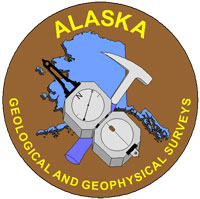
|
|
Arizona Geological Survey
Mission of the Arizona Geological Survey
- Serve as a primary source of geologic information in this state to enhance public understanding of the state's geologic character, geologic hazards and limitations and mineral resources.
- Inform, advise and assist the public in matters concerning the geological processes, materials and landscapes and the development and use of the mineral resources of this state.
- Encourage the wise use of the lands and mineral resources of this state toward its development.
- Provide technical advice and assistance in geology to other state and local governmental agencies engaged in projects in which the geologic setting, character or mineral resources of the state are involved.
- Provide technical advice and assistance in geology to industry toward the wise development and use of the mineral and land resources of this state.
http://www.azgs.az.gov/
|
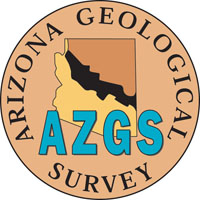 |
Arkansas Geological Survey
Our mission is to serve the people of the Great State of Arkansas by providing geological information in order to develop and enable effective management of the State's mineral, fossil fuel and water resources while protecting the environment. We look forward to working with the public, industry and government in accomplishing our mission goals. Please feel free to call on us with your questions and we will do our utmost to assist you.
http://www.geology.ar.gov/
|
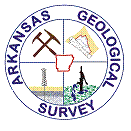 |
Bureau of Land Management
The Bureau of Land Management (BLM) regards fossil resources as a fragile, nonrenewable scientific record. BLM is dedicated to protecting and preserving these valuable resources as part of our Earth's history.
http://www.blm.gov
|
|
California Geological Survey
The California Geological Survey provides scientific products and services about the state's geology, seismology and mineral resources. Our state fossil is the saber-toothed cat. In California, the cat's fossilized remains are most abundant in the La Brea Tar Pits in Los Angeles. Throughout the state, other fossils include mammoths, dogs, bears, cats, horses, camels, antelope, bison, sheep, turtles, flamingos, oysters, snails, clams, and a great diversity of plants and marine fossils.
http://www.conservation.ca.gov/cgs/Pages/Index.aspx
|
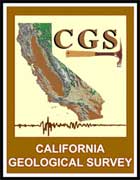 |
Colorado Geological Survey
The Colorado Geological Survey (CGS) is a state government agency within the Colorado School of Mines whose mission is to help reduce the impact of geologic hazards on the citizens of Colorado, to promote responsible economic development of mineral and energy resources, provide geologic insight into water resources, provide avalanche safety training and forecasting, and to provide geologic advice and information to a variety of constituencies. By providing sound information and new knowledge, the Colorado Geological Survey contributes to economic growth and improvement in the quality of life for Colorado's citizens.
http://www.geosurvey.state.co.us/
|
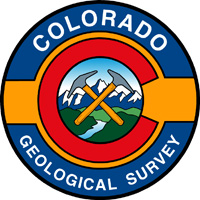 |
Connecticut Geological Survey
The Connecticut Geological Survey mission is to inventory the geological features of the state, with special reference to such economic products as building stones, clays, ores, and other mineral substances; promote geologic research, environmental education, and applied geologic mapping in the State; prepare special reports and maps of both general and detailed scientific descriptions of the State's geology in order to support societal needs of environmental conservation, land and water management, hazards mitigation, pollution prevention and energy. The Connecticut Geological Survey mission is accomplished through cooperative relationships with academia, State and Federal agencies, and partnerships with non-profit organizations.
http://www.ct.gov/deep/cwp/view.asp?A=2701&Q=487928
|
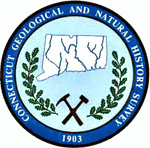 |
Delaware Geological Survey
The mission of the DGS is to provide objective earth science information, advice, and service to its stakeholders–the citizens, policy makers, industries, and educational institutions of Delaware.
http://www.dgs.udel.edu/delaware-geology
|
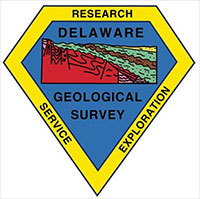 |
Florida Geological Survey
The Florida Geological Survey is the premier state government institution specializing in geoscience research and assessments to provide objective, quality data and interpretations. Environmental, conservation, and public-welfare issues are addressed through applied field and laboratory investigations supported by our geologic sample and research libraries as well as collaborative efforts within the Florida Department of Environmental Protection and with other regulatory or policy-making entities. The FGS is dedicated to facilitating a culture of environmental stewardship. This is achieved by proactively sharing knowledge through accessible geoscience data, active participation on advisory committees, research and assessment publications, websites, public and technical presentations and educational activities.
http://www.dep.state.fl.us/geology/default.htm
|
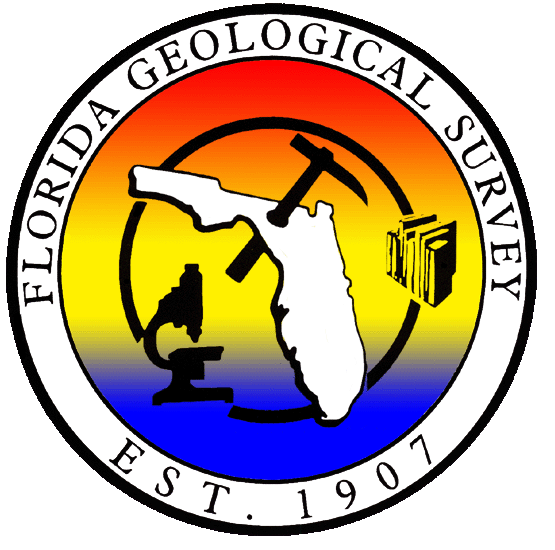 |
Geological Survey of Alabama
The Geological Survey of Alabama, established in 1848, provides service and information to Alabama and its citizens as a natural resource data gathering and research agency. As part of its mission, GSA explores and evaluates the mineral, water, energy, biological, and other natural resources of the State of Alabama and conducts basic and applied research in these fields.
http://www.gsa.state.al.us/
|
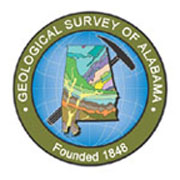 |
Indiana Geological Survey
The mission of the Indiana Geological Survey is to provide geologic information and counsel that contribute to the wise stewardship of the energy, mineral, and water resources of the state. Since 1837, the health, safety, and welfare of Indiana's citizenry have benefited through a combination of Indiana Geological Survey activities.
- Focused research initiatives and cooperative investigations with governmental agencies, businesses and industries, and educational organizations
-
Geologic sample and data collection and archiving
-
Dissemination of information in many forms, including published maps, reports, databases, and educational outreach programs
These activities fulfill an important part of the public service mission of Indiana University by addressing Indiana's need for the timely evaluation of its geological resources and hazards in light of complex and evolving economic and societal needs.
https://igs.indiana.edu/
|
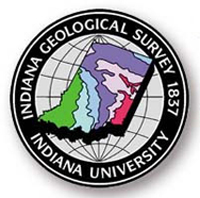 |
Kansas Geological Survey
The Kansas Geological Survey (KGS) is located in Lawrence on the west campus of the University of Kansas and has a Well Sample Library in Wichita. The KGS is a research and service division of the University of Kansas, is charged by statute with studying and providing information on the state's geologic resources. The KGS has no regulatory authority and does not take positions on natural resource issues. Research at the KGS focuses primarily on energy, water, and the environment and addresses natural resource challenges facing the state of Kansas. The KGS also generates new information about the state's geology and develops tools and techniques for studying the state's surface and subsurface through its geophysics and mapping programs. Primary users of this information include local, State, and Federal agencies; oil and gas exploration companies; engineering companies and geotechnical consultants dealing with construction, environmental, and geologic hazard issues; educators; and private citizens wanting to learn more about the state's geology and resources.
http://www.kgs.ku.edu/index.html
|
 |
Kentucky Geological Survey
The mission of the Kentucky Geological Survey (KGS) is to provide for citizens, researchers, industry, and government, scientifically based information on Kentucky's geology and mineral and water resources. KGS conducts research, collects data, and serves as the State's official archive for data on petroleum, coal, minerals, ground water, and topographic and geologic maps.
The KGS hosts an annual Earth Science Week open house, which includes National Fossil Day in Lexington, KY. The open house has many hands on exhibits concerning earth science, including fossils and paleontology. We invite the public to bring in fossils and have them identified. The open house is hosted by KGS but also includes exhibits and activities by the Dept. of Earth and Environmental Science at the University of Kentucky, the Kentucky Paleontological Society, and other organizations.
http://www.uky.edu/KGS/
|
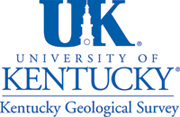 |
Maine Geological Survey
The mission of the Maine Geological Survey is to provide the people of Maine with quality information to facilitate informed decision-making for natural resource management, economic development, conservation planning, and regulation; to provide public assistance; and to promote education. The Survey maps, inventories, assesses, and interprets Maine's geology and supports its mission by using computerized geographic information systems and databases, and by publishing maps and reports.
http://www.maine.gov/dacf/mgs/index.shtml
|
 |
Mandatory Center of Expertise for the Curation and Management of Archaeological Collections
The Mandatory Center of Expertise for the Curation and Management of Archaeological Collections (MCX-CMAC) is a group of skilled professionals established by the U.S. Army Corps of Engineers and located at the Corps' St. Louis District (CEMVS). The MCX-CMAC maintains state-of-the-art technical expertise in the curation of archaeological collections, collections management (including historic properties database and website development), special purpose designs and construction requirements of curation facilities, mass graves investigations, mass disaster fatalities recovery (in support of FEMA), forensic support to United States government agencies, and archival/historic cartographic investigations to assist military and intelligence agencies. Staff manages all USACE curation-needs assessments and design services for the curation of archeological collections.
http://www.mvs.usace.army.mil/Missions/Centers-of-Expertise/Curation-Mgmt-of-Archaeological-Collections/
|
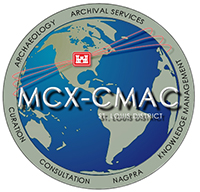 |
Minnesota Geological Survey
The Minnesota Geological Survey is a unit of the Newton Horace Winchell School of Earth Sciences in the University of Minnesota. The Survey is the University outreach center for the science and technology of earth resources in Minnesota. The Survey conducts basic and applied earth science research, conveys that information to the public through publications and service activities, and promotes earth science education. Minnesota is its exclusive focus.
http://www.mngs.umn.edu/index.html
|
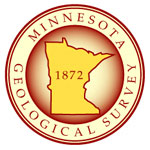 |
Missouri Division of Geology and Land Survey
Geological Survey program staff members provide technical assistance to public and private sectors. We conduct geologic investigations at liquid, solid and hazardous waste sites. Staff geologists publish geologic maps and define regional earthquake hazards to assure proper design and safe development in areas prone to earthquake damage. We acquire, manage and maintain databases containing information about geologic and mine maps, springs, sinkholes, well logs, core samples, losing streams, dye traces and stratigraphic sections as well as maintain basic geologic data. We assist the State Oil and Gas Council in regulating oil and gas wells to minimize the impact of petroleum production, in the interest of the public health and the environment. We ensure that new private water wells are constructed to standards, as set by state regulations and regulate the proper plugging of wells, the construction of private water wells, irrigation wells, monitoring wells and heat pump wells. We are home to the McCracken Core Library and Research Center and the state's Mine and Cave Data repositories.
http://dnr.mo.gov/geology/
|
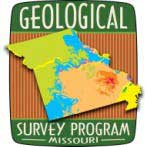 |
National Oceanic and Atmospheric Administration
NOAA's Education Mission: The America Competes Act (P.L. 110-69) gives NOAA broad authority for educational activities. Stemming from this statute and other program-specific education mandates, the NOAA education community works collaboratively to advance the priorities outlined in NOAA's Education Strategic Plan and meet NOAA''s Education Mission: "To advance environmental literacy and promote a diverse workforce in ocean, coastal, Great Lakes, weather, and climate sciences, encouraging stewardship and increasing informed decision making for the nation." This strategic direction is leveraged by the many cross-cutting education programs and initiatives across NOAA.
http://www.noaa.gov/education
|
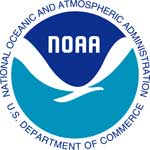 |
National Park Service
The National Park Service conserves a great diversity of ancient life preserved as fossils. Collectively, fossils discovered in parks span geologic time from primitive algae found high in the mountains of Glacier National Park, Montana, to the remains of ice age animals known from caves in the Grand Canyon, Arizona. The principal mission of the National Park Service is the preservation, protection, and stewardship of natural and historic resources "in such manner and by such means as will leave them unimpaired for the enjoyment of future generations." Fossils and the natural geologic processes which form, preserve, and expose them are included in this mission.
https://www.nps.gov/subjects/fossils
|
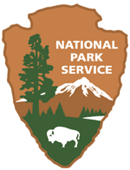 |
National Science Foundation
The National Science Foundation (NSF) is an independent federal agency that funds fundamental research and education across all fields of science and engineering. NSF grants reach all 50 states through awards to nearly 2,000 universities and institutions. Through both research and education grant programs, NSF supports both the discovery and understanding of new paleontological finds. For decades, the agency has supported leading researchers in paleontology, geology and biology and has funded some of the most popular television programs, websites and educational activities relating to those topics.
https://www.nsf.gov/
|
 |
Nevada Bureau of Mines and Geology
The Nevada Bureau of Mines and Geology (NBMG) is a research and public service unit of the University of Nevada and is the state geological survey. NBMG scientists conduct research and publish reports on mineral resources, engineering geology, environmental geology, hydrogeology, and geologic mapping.
http://www.nbmg.unr.edu/
|
 |
New Mexico Bureau of Geology and Mineral Resources
The New Mexico Bureau of Geology & Mineral Resources, established by legislation in 1927, is a service and research division of the New Mexico Institute of Mining and Technology. We serve as the geological survey for the State of New Mexico.
http://geoinfo.nmt.edu/
|
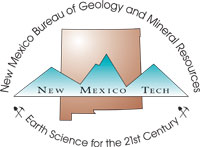 |
North Dakota Geological Survey
The North Dakota Geological Survey serves as the primary source of geologic information in the state of North Dakota. The Survey provides many functions including interpreting the states geologic setting; conducting geological investigations that emphasize the state's economic products, geological hazards, and energy resources; establishing a scientific framework from which to base regulatory programs; and operating and maintaining a public repository for fossils, rock specimens, rock cores, well cuttings, and associated geologic data.
https://www.dmr.nd.gov/ndgs/
|
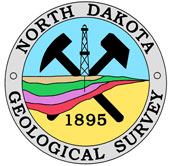 |
The Ohio Geological Survey
Since 1837, the Ohio Geological Survey has researched and mapped Ohio's geology to support industry, commerce, environment, safety, and education, thereby ensuring the state's strong economic foundation. The Survey is the state's permanent archive and public access point for geologic data, supporting environmental protection, proper land use development, regulation of fossil fuel and minerals extraction, groundwater development, mitigation of geologic hazards, mineral and petroleum exploration, and economic development.
http://geosurvey.ohiodnr.gov/
|
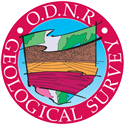 |
The Oklahoma Geological Survey
The Oklahoma Geological Survey is a state agency for research and public service located on the Norman Campus of the University of Oklahoma and affiliated with the OU College of Earth and Energy. The Survey is chartered in the Oklahoma Constitution and is charged with investigating the state's land, water, mineral, and energy resources and disseminating the results of those investigations to promote the wise use of Oklahoma's natural resources consistent with sound environmental practices.
http://www.ou.edu/ogs/
|
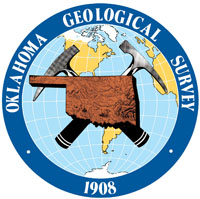 |
Oregon Department of Geology and Mineral Industries
The Oregon Department of Geology and Mineral Industries (DOGAMI) mission is to provide earth science information and regulation to make Oregon safe and prosperous.
http://www.oregongeology.org/sub/default.htm
|
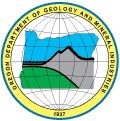 |
Pennsylvania Geological Survey
The PA Geological Survey is committed to serving the citizens of Pennsylvania by collecting, preserving, and disseminating impartial information on the Commonwealth's geology, geologic resources, and topography in order to contribute to the understanding, wise use, and conservation of its land and included resources.
http://www.dcnr.state.pa.us/topogeo/index.aspx
|
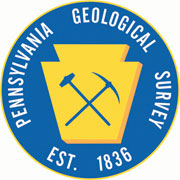 |
Rhode Island Geological Survey
The mission of the Rhode Island Geological Survey and the Rhode Island State Geologist is to provide the people of Rhode Island with quality geologic information to facilitate informed decision-making for natural resource management, economic development, conservation planning, and regulation; to provide public assistance; and to promote education. The Geological Survey will map, assess, inventory and interpret Rhode Island's geology. The Geological Survey will support its mission by using computerized geographic information systems and databases, and by publishing maps and reports, including map publication on demand.
http://web.uri.edu/geo/
|
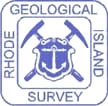 |
Texas Parks & Wildlife
The mission of the Texas Parks and Wildlife is to manage state parks and historic sites to conserve natural and cultural resources, provide recreational and educational opportunities, and foster an understanding of the diversity of Texas' lands and heritage for all generations.
http://tpwd.texas.gov/
|
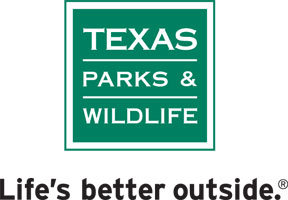 |
U.S. Army Corps of Engineers
The U.S. Army Corps of Engineers has approximately 37,000 dedicated Civilians and Soldiers delivering engineering services to customers in more than 130 countries worldwide. With environmental sustainability as a guiding principle, our disciplined Corps team is working diligently to strengthen our Nation's security by building and maintaing America's infrastructure and providing military facilities where our servicemembers train, work and live. We are also researching and developing technology for our war fighters while protecting America's interests abroad by using our engineering expertise to promote stability and improve quality of life.
Through deeds, not words, we are BUILDING STRONG.
http://www.usace.army.mil/
|
 |
U.S. Department of Agriculture
Natural Resources Conservation Service
The USDA Natural Resources Conservation Service (NRCS) helps farmers, ranchers and forest landowners conserve the nation's soil, water, air and other natural resources. All programs are voluntary and offer science-based solutions that benefit both the landowner and the environment.
With 70 percent of U.S. land privately owned, partnerships with private landowners are critical to the health of our nation's land. NRCS works with local conservation districts and other partners, using nearly 80 years of scientific and technical expertise to result in cleaner air and water, improved soil health, abundant wildlife habitat, and robust agriculture.
NRCS is dedicated to protecting our natural resource inheritance to provide a legacy for present and future generations. NRCS recognizes the importance of preserving paleontological resources for their scientific significance, educational value, recreational opportunities and aesthetic qualities.
https://www.nrcs.usda.gov/wps/portal/nrcs/site/national/home/
|
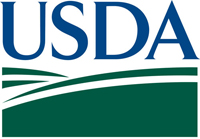 |
U.S. Fish and Wildlife Service
The U.S. Fish and Wildlife Service's mission is, working with others, to conserve, protect and enhance fish, wildlife, and plants and their habitats for the continuing benefit of the American people. We are the only agency of the U.S. Government with that primary mission. The Service helps protect a healthy environment for people, fish and wildlife, and helps Americans conserve and enjoy the outdoors and our living treasures. The Service's major responsibilities are for migratory birds, endangered species, certain marine mammals, and freshwater and anadromous fish.
https://www.fws.gov/
|
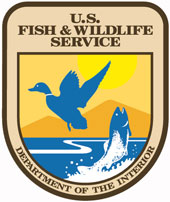 |
U.S. Forest Service
The Forest Service recognizes multiple use values for paleontological resources that include: a legacy for present and future generations; scientific significance, education and interpretation; and recreational opportunities and aesthetic qualities. The Forest Service is dedicated to protecting and managing the paleontological (fossil) resources which are important to our natural resource inheritance.
https://www.fs.fed.us/geology/fossils.html
|
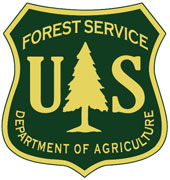 |
U.S. Geological Survey
The USGS serves the Nation by providing reliable scientific information to describe and understand the Earth; minimize loss of life and property from natural disasters; manage water, biological, energy, and mineral resources; and enhance and protect our quality of life.
https://www.usgs.gov/
|
 |
Utah Geological Survey
The Utah Geological Survey is an applied scientific agency that creates, interprets, and provides information about Utah's geologic environment, resources, and hazards to promote safe, beneficial, and wise use of land.
http://geology.utah.gov/
|
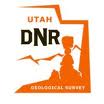 |
Vermont Geological Survey
The Vermont Geological Survey, also known as the Division of Geology and Mineral Resources in the Department of Environmental Conservation, conducts surveys and research relating to the geology, mineral resources and topography of the State.
http://dec.vermont.gov/
|
|
The Virginia Division of Geology and Mineral Resources
Serving as Virginia's Geological Survey, the Division of Geology and Mineral Resources (DGMR) performs investigations aimed at reducing risk from geologic hazards, and encouraging sustainable development through the wise use of mineral, land, water, and energy resources. In addition to publishing maps and reports, DGMR maintains repositories of geological and geophysical data, as well as rock, fossil, and core samples. With our staff of experienced geoscientists, we are uniquely positioned to provide expert assistance in matters pertaining to the geology and mineral resources of the Commonwealth of Virginia.
https://www.dmme.virginia.gov/dgmr/rmf.shtml
|
 |
West Virginia Geologic and Economic Survey
The West Virginia Geologic and Economic Survey's goals are to: Serve as a regional point of contact and access to a wealth of geological data about West Virginia; Provide expertise on the fuel and non-fuel geologic endowment of the state; Disseminate scientific information through presentations, meetings, and conferences for both scientists and non-scientists; through electronic and print media in the form of journal and popular articles; and through the internet in the form of web pages that present the results of geological investigations; Conduct unbiased research on a range of subjects associated with natural resource and environmental issues; Answer questions and conduct inventories on geologic aspects of environmental issues such as water use, geologic hazards, facility siting, and waste disposal; Map bedrock and surficial geology; Conduct outreach to schools through classroom instruction, field trips, and displays; Look for funding opportunities from Federal and other programs to support the goals of the agency.
http://www.wvgs.wvnet.edu/
|
 |
Wisconsin Geological Survey
The mission of the Wisconsin Geological and Natural History Survey is to conduct earth-science surveys, field studies, and research.
- We provide objective scientific information about the geology, mineral resources, water resources, soil, and biology of Wisconsin.
- We collect, interpret, disseminate, and archive natural resource information.
- We communicate the results of our activities through publications, technical talks, and responses to inquiries from the public.
These activities support informed decision making by government, industry, business, and individual citizens of Wisconsin.
http://wgnhs.uwex.edu/
|
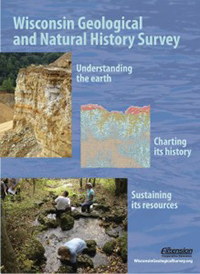 |
More to come...
Many additional partnerships are in the planning stage. Please check back soon.
To add your organization's support for National Fossil Day to this page, please contact us for information about partnerships.
|